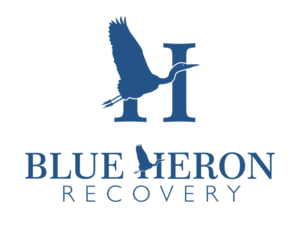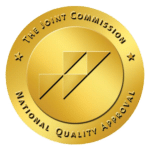Supporting a partner struggling with cocaine addiction in San Antonio, TX, can be challenging, but your love and commitment can make a significant difference. Our team at Blue Heron Recovery is here to explain what cocaine addiction is, how it impacts individuals and relationships, and offer practical advice on how to help your loved one through this difficult time.
Understanding Cocaine Addiction
Cocaine addiction in San Antonio, TX, is a chronic disease characterized by the compulsive use of cocaine. This type of addiction affects the brain’s reward system. It creates a powerful craving for the drug, making it difficult for the individual to stop using despite the negative consequences.
How Cocaine Addiction Develops
Cocaine addiction in San Antonio, TX, typically develops over time. It often starts with occasional use, which can quickly lead to regular use as the individual becomes dependent on the drug to feel pleasure or cope with stress.
The Impact on Individuals and Relationships
Cocaine addiction takes a toll on the individual’s physical and mental health, leading to various issues such as anxiety, paranoia, and depression. It also strains relationships, causing trust issues, financial problems, and emotional distress.
Signs Your Loved One Is Struggling With Cocaine Addiction
There are various signs that your loved one may be struggling with cocaine addiction in San Antonio, TX. These may include:
Behavioral Signs
Behavioral changes are often the first indication that someone is struggling with cocaine addiction. Look for sudden shifts in behavior, increased secrecy, isolation, and neglect of responsibilities at work or home. Financial problems and legal issues can also be red flags.
Physical Signs
Physical symptoms of cocaine addiction include dilated pupils, frequent nosebleeds, weight loss, changes in appetite, insomnia, and fluctuating energy levels. These signs can be subtle but are critical indicators of a bigger problem.
Psychological Signs
Psychologically, cocaine addiction in San Antonio, TX, can manifest as mood swings, irritability, anxiety, paranoia, depression, apathy, difficulty concentrating, and increased risk-taking behavior. These symptoms can vary in intensity and duration.

How to Help Your Partner With Cocaine Addiction
There are several things that you can do to help your loved one who is struggling with cocaine addiction in San Antonio, TX.
Educate Yourself About Addiction
Understanding cocaine addiction and its effects is crucial for providing support. Delve into research about the challenges your partner is facing, and learn about the physical, mental, and emotional aspects of addiction. To better support your partner on their journey, familiarize yourself with the symptoms, causes, and treatment options for cocaine addiction. This knowledge will equip you to offer informed and compassionate assistance.
Communicate Openly and Honestly
Approach the topic with care and compassion, ensuring you create a safe space for dialogue. Avoid blame and judgment, and instead, listen actively to their concerns and validate their feelings. Open communication is key to supporting your partner effectively. Share your thoughts and feelings honestly but gently, and encourage them to do the same.
Encourage Professional Help
Suggest seeking assistance from a healthcare professional who specializes in addiction. Research local treatment options, including rehabilitation centers, therapists, and support groups, and provide this information to your partner. Professional guidance is essential for recovery, as experts can offer tailored treatment plans and strategies.
Offer Emotional Support
Exercise patience and understanding as your partner navigates the complexities of addiction. Offer encouragement and positive reinforcement for their efforts and progress. Consider attending therapy sessions or support groups together to show your commitment to their recovery. Your presence and support can be a significant motivator for them.
Set Boundaries
Set clear boundaries to safeguard your well-being and foster a healthier relationship dynamic. Communicate the consequences of continued drug use to your partner, ensuring they understand the importance of respecting these boundaries. Boundaries are crucial for maintaining mutual respect and for their recovery process.
Avoid Enabling Behavior
Do not cover up or make excuses for your partner’s behavior as this can perpetuate the addiction. Avoid giving them money or resources that could be used for drugs. By not enabling their behavior, you help them take responsibility for their actions and encourage them to seek the help they need.
Promote Healthy Lifestyle Changes
Encourage your partner to participate in healthy activities such as exercise, hobbies, and social interactions. Support their efforts to build a stable daily routine, which can be highly beneficial in the recovery process. Living a balanced lifestyle can alleviate stress and offer healthy alternatives to drug use.
Stay Informed About Relapse Prevention
Understand the signs of potential relapse and help your partner develop coping strategies to avoid triggers. Educate yourself about common triggers and high-risk situations, and work together to create a plan to handle these challenges. Adopting this proactive approach can significantly reduce the risk of relapse.
Seek Support for Yourself
Join a support group for families and partners of addicts to gain insights and share experiences. Consider individual therapy to manage your own stress and emotions. Supporting someone with an addiction can be draining, so it’s important to take care of yourself as well. Self-care ensures you remain strong and capable of providing the support your partner needs.
Be Prepared for Challenges
Recognize that recovery is a long and difficult process, often marked by setbacks and challenges. Stay committed to supporting your partner through these obstacles, as perseverance is crucial in overcoming addiction. Celebrate small victories together and remain hopeful, understanding that recovery is a journey rather than a destination.
Get Help at Our Facility
Helping a partner with cocaine addiction is a challenging but noble endeavor. By understanding the nature of cocaine addiction in San Antonio, TX, recognizing the signs, and providing unwavering support, you can make a profound impact on your partner’s recovery journey. Remember, you don’t have to do it alone. Reach out to professionals and support networks to ensure both you and your partner receive the necessary help. Together, you can overcome this difficult period and emerge stronger.
At Blue Heron Recovery, we offer comprehensive treatment programs for cocaine addiction in San Antonio, TX. Our experienced staff provides personalized care in a supportive environment, ensuring your loved one receives the best possible treatment. Explore our treatment options at Blue Heron Recovery by calling (210) 588-0508 to schedule an appointment at our facility.





